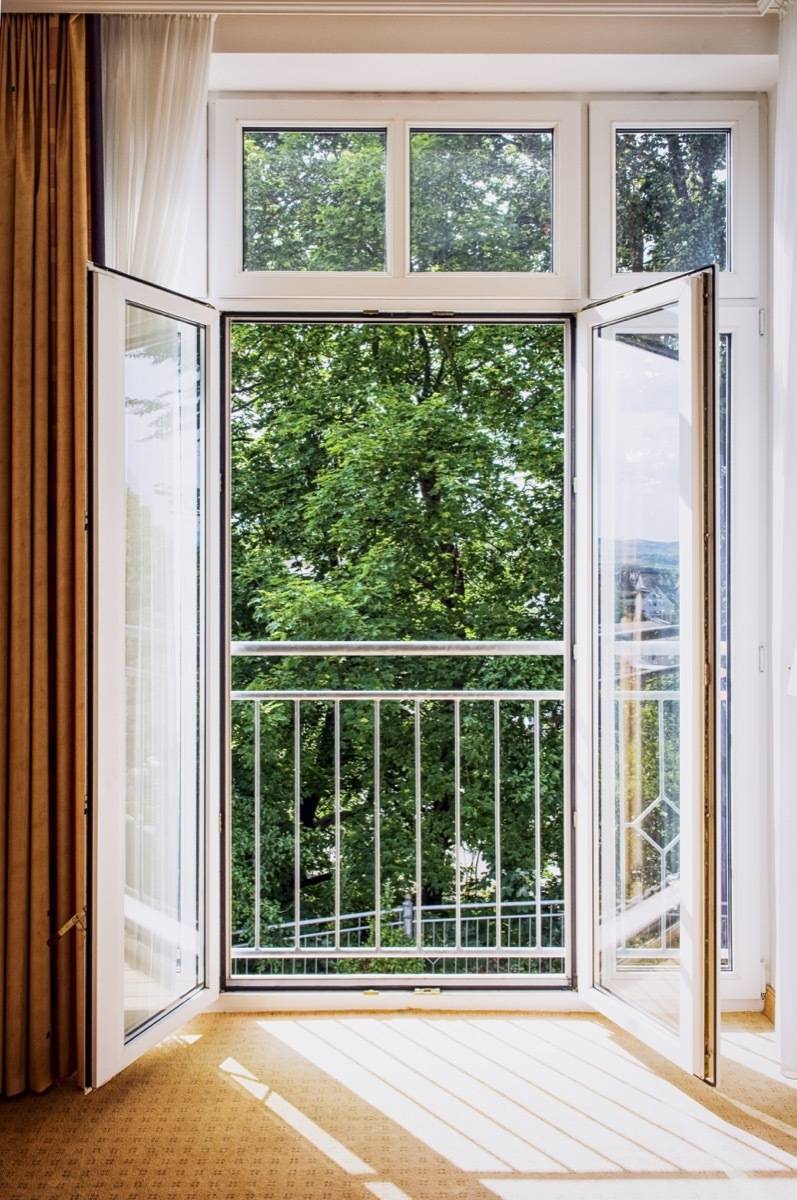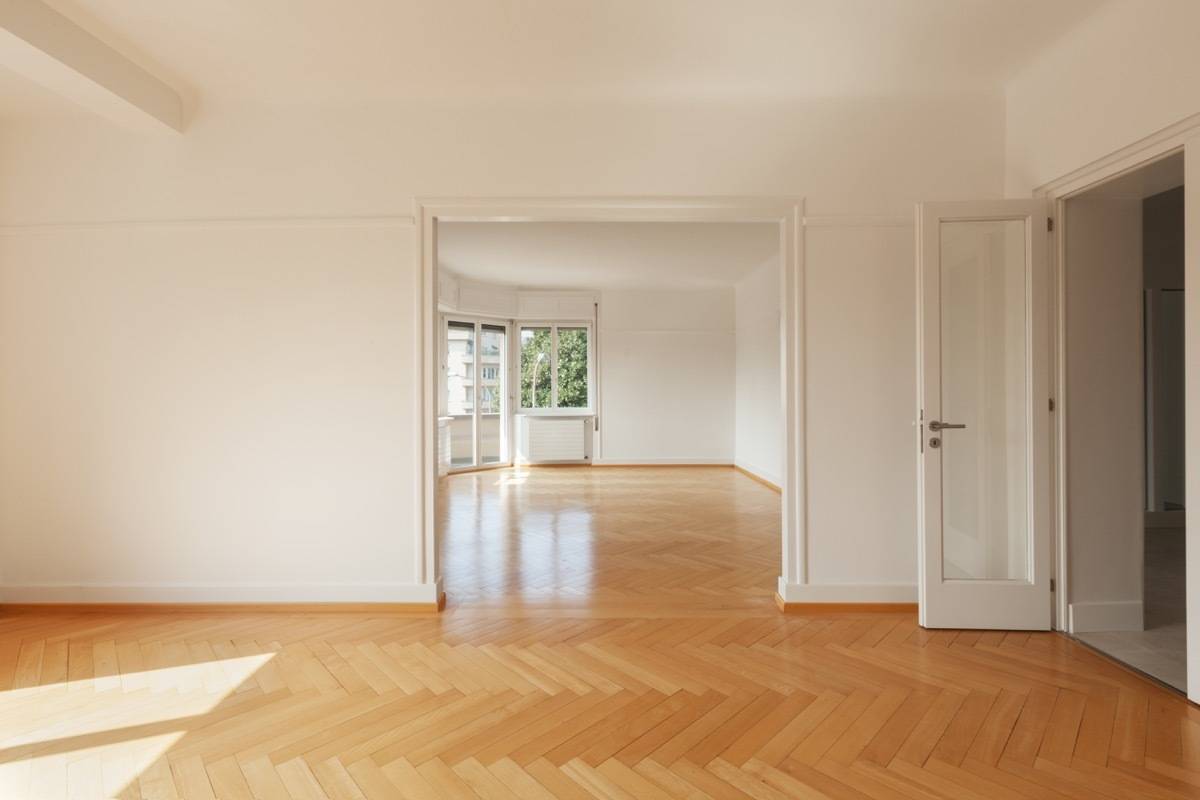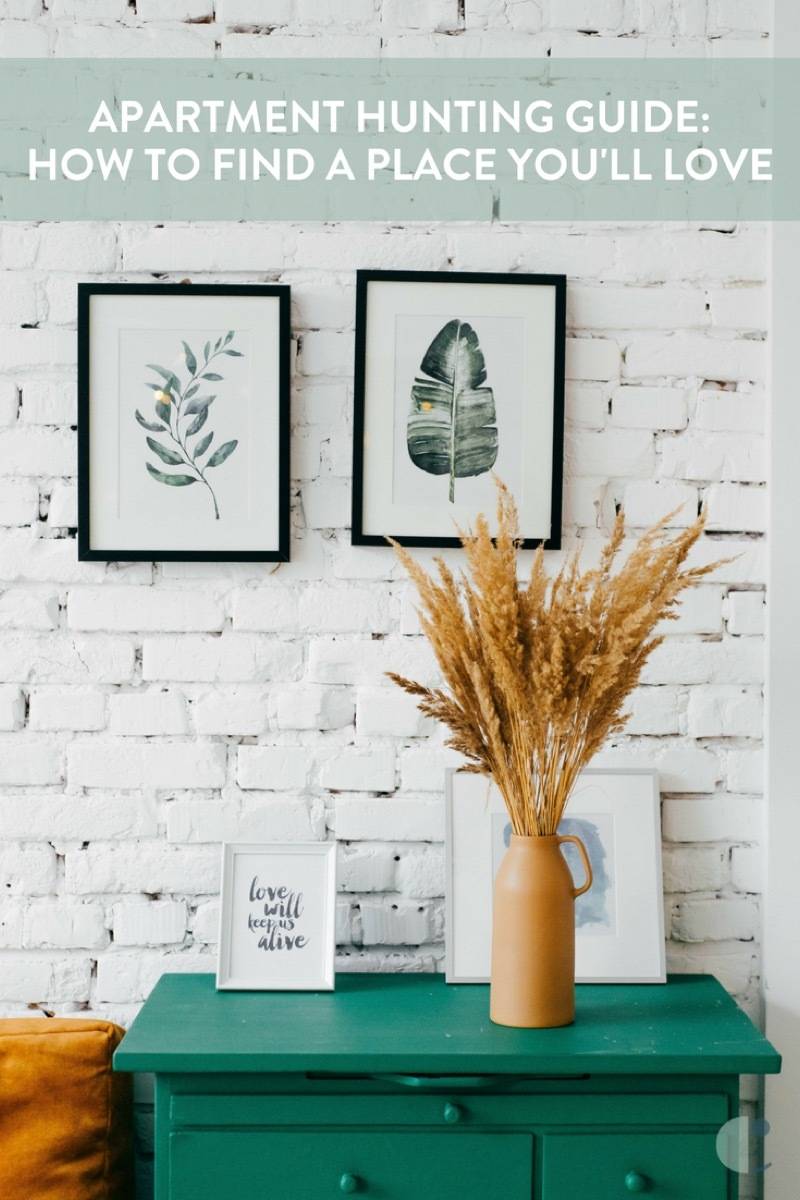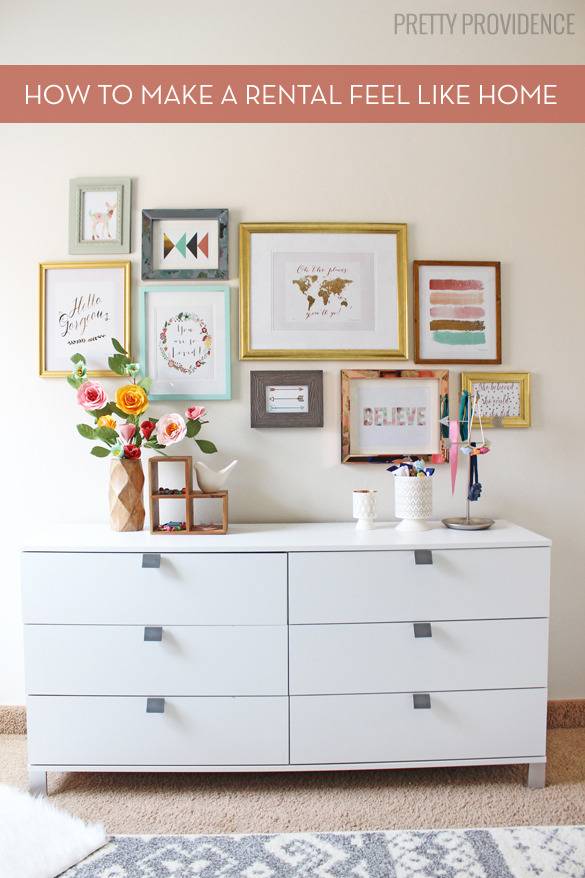If you’re currently apartment hunting, you’re not alone. Over 36% of Americans rent their homes, and in these summer months, that means a good portion of renters are closing out old leases and moving to new places. Whether you’re a new renter, or you’ve signed a few leases in your day, the whole process of apartment hunting can be overwhelming. There are so many options to sift through, scams to avoid, and factors to consider when figuring out how to find an apartment. I’ve moved around a lot, and in early adulthood would never live at one apartment for more than 12 months. Armed with the knowledge of what not to do, I’m sharing tips that will hopefully make the apartment hunting process go a little more smoothly for you.
How to find an apartment you’ll love

There are a few questions you have to ask yourself before you start apartment hunting. Make a wishlist of requirements. How important is location? Do you need to be near public transit? How many rooms do you need? Is natural light important to you? Do you require a parking garage, or is street parking okay? Does the apartment need to come furnished, or are you taking everything with you? Once you’ve written out your wishlist, be mindful that you might have to compromise on some of your requirements. Your wishlist serves to narrow down your search, and help you find what you’re looking for.
Now that you know what you want, you have to determine what you can have. Let’s start off with the biggest predicament when looking for a new apartment:
Let’s talk budget

Before you even begin apartment hunting, you need to set a budget for yourself. Much like the TLC show “Say Yes to the Dress,” you don’t want to spoil your appetite by looking at apartments that are out of your price range. Otherwise you’ll be saying “yes” to a place you’ll never leave, because you can’t actually afford to step foot outside your home.
Other than the monthly cost of rent, you have to budget the total cost of living in a new place before you commit:
- Upfront costs: These are the unchanging fees that you will be expected to pay if you rent the apartment (i.e., rent). In addition to rent, factor in the cost of the security deposit, which will be collected at the start of the new lease, and is usually equal to or greater than the cost of one month’s rent. Never bank on receiving the full security deposit back from your current rental property – ask any renter and they’ll probably have a horror story or two of getting screwed over by old landlords. You may also have to pay an application fee just to apply for the apartment, so keep that in mind, too.
- Utilities (old records): Depending on what state you live in, you may have access to current utilities costs on a property. For example – if you live in Minnesota, records are private, but if you live in Florida, they’re public. To see if you can look at old utility records, visit the website of the utility company responsible for the property to see if they have a database of current costs.
- Utilities (estimate): If you’re estimating the cost of utilities, plan to spend $200 a month. The actual cost will fluctuate depending on the time of year – summer months tend to be more expensive with the addition of air conditioners – and in some colder climates, you might not be responsible for the cost of heat.
- Internet/cable/streaming services: These costs should be easy to figure, as they will be similar to what you are currently paying. If you have a roommate who is in charge of the internet or cable, and that roommate is not moving with you, get the information from them.
- Parking: Depending on where you want to move to, there might be an additional fee for parking. This is a question to ask the landlord during your walkthrough.
- Renter’s insurance: Any adult renting their home should have renter’s insurance. If you don’t already have it, now is a great time to get signed up! Protect your belongings and your wallet in case of emergency. Expect this cost to be roughly $150 a year.
- Pet rent: If you have a pet, there will most likely be an extra cost per furry friend. Don’t forget to factor this into the budget, too.
The best avenues for apartment hunting
Now that you’ve determined your budget, it’s time to start looking. Here are the best resources that answer the question – how to find an apartment?:
- Online databases: I always start my apartment hunting online. Check out websites like Zillow, Apartment Finder, and Apartment Guide. And don’t be afraid to go old-school and check out Craigslist – there are still plenty of listings to be found there (just be on alert for scammers).
- Word-of-mouth: Sometimes the best way to find a place is just to tell people you’re looking. Talk about your search with work friends. Post about it on social media. You might find that a friend of yours is looking for a roommate. Or maybe an acquaintance is moving out of a really great apartment that they can tell you all about.
Roommate Finder: How not to get stuck with a dud

Let’s say you’ve found your ideal place while apartment hunting, but you can’t afford it on your own. You can always get a roommate! There are a few things to keep in mind when searching for someone to live with:
- BFF ≠ ideal roomie: Just because you and your BFF get along well, that doesn’t necessarily mean you should live together. Renting an apartment with someone airs on the side of business transaction more than friendship pact. Before you sign a lease, check for common ground. Do both of you keep your homes clean? Or is one of you more obsessive than the other? How good is your BFF at meeting deadlines? Do they always pay their current rent on time? Can they keep a steady job, or do they have large periods of unemployment? To live with a good friend, you have to be ready to step outside of the friendship, and think and speak practically.
- Strangers on the internet: Before you just hop on Craigslist and put out an all-points bulletin, consider smaller avenues of internet advertising first. Join smaller roommate finder subgroups with locals who share common interest. Reach out to your Facebook friend list. Don’t put any of your personal information online, and most importantly, proceed with caution and common sense. If something feels fishy, it probably is.
- Ask the right questions: You’re going to be sharing a bathroom and kitchen with this person for the next 12 months, it’s important that you have some commonalities. Don’t be afraid to interview potential roommates. How clean do they like to keep their home? What are there hobbies? Do they smoke? This list of questions to ask potential roommates is especially thorough and insightful.
Personally, I’d recommend living with no more than one other person. Why? Because three to a house means two can gang up on one. It’s just easier that way. One final note on roommates: Don’t get burned. If you are moving in with a roommate, be adamant that they sign the lease with you. You shouldn’t carry the burden of being responsible for your roommates actions.
Is the apartment safe?

If you’re moving to a neighborhood you’re unfamiliar with, it’s a good idea to check for safety. At a glance, a certain rental may seem like somewhere you’d like to live, but looks can be deceiving. When apartment hunting, consider these tips for verifying the safety of a property:
- Ask questions: Your landlord is probably the last person to be honest about the safety of the neighborhood, but it doesn’t hurt to ask. The existing tenants on or around the property are your best source for honesty. Don’t be shy – if you see someone walking through the neighborhood you want to live in, let them know you’re considering moving to the area, and ask them how they like living there.
- Go at night: One of the fastest ways to tell if an area is sketchy or not is to do a nighttime drive-by. I do this for any property I’m thinking of moving to. The weirdos really do come out at night.
- Look at police activity in the area: This tip is especially helpful if you’re moving out of town and can’t necessarily carry out the first two safety tips. Check out crime map websites such as MyLocalCrime.com or CrimeReports.com to check out the type of criminal activity and its frequency.
- Avoid first floor units: Rent might be a bit cheaper on the ground level, but that’s generally because that unit is the easiest to access from the street. Avoid first floor units if possible, for your own safety.
How to avoid scams (is this place even real?)

Unfortunately, the internet is riddled with trolls and scammers – and apartment listings are no exception. Not only do you have to figure out how to find an apartment, but you have to make sure that place actually exists. Here are a few tips for how to spot a scam when you’re apartment hunting:
- The cost is too low: When you first stumble on the listing, you can’t believe it. The best part of town for the least amount of money. It seems too good to be true, and chances are, that’s because it is. If an apartment is being listed for a severely reduced cost in relation to other properties in the area, proceed with caution.
- There are barely any photos: Maybe you’ve found a listing at a good price, but there’s only one photo – and it’s of the outside of the house. Definitely fake.
- The online ad asks for personal information before anything else: Don’t give out your social security number to strangers on the internet.
- The landlord wants money wired to them: If they are a legitimate landlord, they can take a check. And they can take it in person.
- The landlord is not local: If the landlord for a property lives overseas, it’s just best to avoid that listing altogether. Even if the property is real, you don’t want to be renting from someone in a totally different timezone.
- The landlord overshares information, or is in a hurry: If someone is feeding you too much information about something, that’s a clear sign that they’re lying. This little tidbit is true about apartment hunting and in real life! And if the landlord is “in a rush” to get the apartment rented out, just walk away.
How to have a good walkthrough

You’ve found a place you love, and you want to check it out, so you schedule to meet with the landlord. The walkthrough of a property is kind of like a job interview. You want to impress the landlord, but you also want to get a lay of the land. Here are a few tips on how to have a productive walkthrough:
- Come prepared with questions: Just like an interview, you want to come to the walkthrough with your questions thought out ahead of time. I don’t know about you, but when I’m put on the spot, I freeze up immediately. Having my questions written down ahead of time helps me glean all the information I need. Ask about additional fees like parking and pet rent. Inquire about the rules of the property (i.e., Could you paint? Could you put nails in the walls? Who is in charge of mowing the grass?). Ask about timeframes – when will the property be ready to move in?
- Wear something nice: You’re trying to make a good impression on the landlord, so present your best self first. Business casual will do.
- Don’t be late: This is just good common sense. If anything, show up early so you can get a feel of the neighborhood.
- Don’t be afraid to poke around the property: You can’t be timid during a walkthrough. This is your one and only chance to see if this is the apartment you want to live in for the next 12+ months. Open closets. Look up at the ceiling for water damage. Make note (aloud) of anything that’s broken or cause for concern.
Things everyone forgets when apartment hunting

To close, here are a few parting thoughts from someone who’s looked at her fair share of properties in the past.
- You should check your credit: Before you apply to live in a rental, it’s not a bad idea to take a look at your credit score. A lot of landlords will verify this number, so it’s best to avoid any nasty surprises. You are allowed one free credit check per year, and can access those records through the following credit bureaus: Experian, Equifax, and TransUnion.
- You’ll need the proper credentials and paperwork: To secure a rental, you’ll also have to present certain documents. You’ll always have to have your updated driver’s license, and in addition to that, you may also need pay stubs, and a recent utility bill under your name.
- You might need to write a physical check: It’s 2018, but even still, some property management companies only accept paper checks. Make sure you have a few on hand. If you are out, and don’t want to order a new batch with an address you’ll be moving away from soon, you may be able to obtain single checks directly from your bank. Ask your teller if they offer this service. If not, you can always use a cashier’s check.
- You probably won’t use the fancy amenities: Don’t let the allure of the lobby lounge area and the fully-furnished gym fog your view. Often rental properties will include their extra amenities as an excuse to charge more in rent. Unless an outdoor pool was part of your apartment wishlist, don’t let the amenities out-weight what you’re really looking for out of a property.
- You don’t have to live there forever: This probably isn’t the last place you’ll live, so you might have to let some things slide. If you were really gunning for underground parking, but you’ve found a place you love with an uncovered parking lot, you may be able to compromise. And most importantly, since this place is just temporary, don’t stress out too much.

(Source)

